Lynne Stringer's Blog, page 9
June 4, 2016
Social media
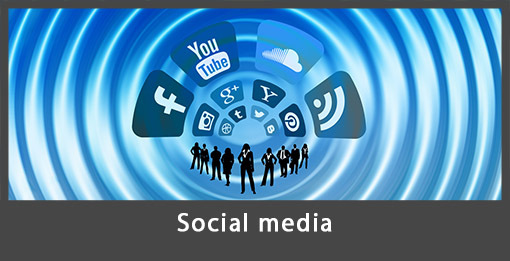 Social media can be a useful tool in reaching people so they hear about your book. Gaining an international audience is now an attainable goal for an unknown author with a small print or self-published book, thanks largely to social media. A few years ago, that kind of thing would have been next to impossible. Sites like Facebook and Goodreads can make a huge difference to an author’s marketing.
Social media can be a useful tool in reaching people so they hear about your book. Gaining an international audience is now an attainable goal for an unknown author with a small print or self-published book, thanks largely to social media. A few years ago, that kind of thing would have been next to impossible. Sites like Facebook and Goodreads can make a huge difference to an author’s marketing.
This doesn’t mean that having no social media platform means your book won’t sell. However, there’s no doubt that pages on social media sites can made a huge difference, so even if you’re not computer literate, it’s a good idea to try it. Other authors are usually able to offer advice as to the best sites to use, and there are professionals out there who can help you set things up if you’re unable to do it yourself.
Most authors recommend having a Facebook author page and a Twitter account. Some may also be active on sites like Pinterest, Tumblr, YouTube and Instagram. Also, being involved in a book-specific site like Goodreads can be a great help too. I have a Facebook author page and a Facebook editor page, a Twitter account, a YouTube channel and a Pinterest account. I am also active on Goodreads, and have found all these sites, particularly Facebook and Goodreads, useful in reaching people who might not have otherwise heard about my books.
As with all these kinds of things, whether they be websites, personal appearances or social media pages, you need to devote time to them. There’s no point in setting them up and then doing nothing with them. It’s a good idea to try and find new content or a way to be involved daily, if possible, or certainly on a weekly basis. I put content on my Facebook pages every day. I make sure I post two tweets a day, as well. On my Pinterest account, I have a board where I post the covers of every book I read and review, and I am a member of a number of different groups on Goodreads, and try and post on different group pages there regularly.
This might seem like a lot of work, and it is. The trick is to try and find sites you like visiting. Goodreads is great for authors, as it’s all about books, so commenting on things can be something we want to do anyway. Most books, especially popular ones, have numerous discussions going on with them on Goodreads, which anyone can comment on. You can find them by searching for the book and scrolling down to the bottom of the page. Also, Goodreads has many different groups of which you can become a member. They cover subjects such as YA books, science fiction, clean romances … virtually anything. In fact, you can start a group yourself if you can’t find the one you want. And if you start one or become a member of one that has something in common with your books, it can be a great springboard to talking about them with someone.
However, a word of warning. Do not post on these sites, or even on your own pages, if all you’re going to do is post sales pitches all day. There’s nothing worse than an author who never posts anything except continual requests for people to buy their books. This is one reason why I find Twitter so frustrating. I try to follow any author who follows me, and frequently many of them will post as often as several times an hour with a quote from the latest great review of their book and a request for you to buy it.
If you’re going to use these social media accounts to their best and see results, you need to establish relationships. This is why it takes so much time, and why favouring sites you enjoy is important. That means it’s (hopefully) not going to be a chore and you will enjoy simply discussing your favourite books with others who also like YA books (or whichever genre you’re discussing). Sometimes they will ask a question that you can answer as an author, and this may lead to questions about your own books, or they may ask for some suggestions of good new reads. If I’m answering this question, while I might include my books, I will also mention some other books in that genre I have enjoyed, so it’s not just all about me.
Whether any of these things bear fruit or not is probably difficult to tell, but I do know I get sales from overseas, and I can’t think of another way people over there could have heard about me except via social media, so I think it works. How much it works probably depends on how much time you devote to it, but even if you can only do a little, it could increase your reach considerably.
If you would like me to write more on any specific site above and how I use them, let me know in the comments below. Have you had any success with a particular site? Let me know in the comments also.
May 28, 2016
An author website
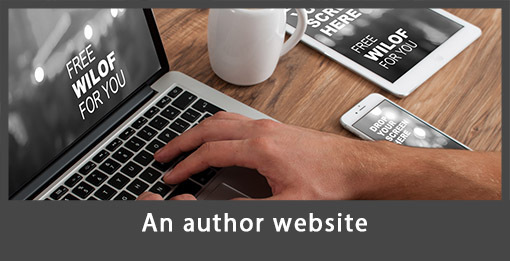 In my role as a professional editor, it still surprises me when I encounter authors who don’t see why they need a website at all. Some prefer a Facebook author page, and don’t get me wrong, they’re good too, but I believe a website is an essential tool in an author’s marketing strategy, especially if you’re only producing ebooks, not print books.
In my role as a professional editor, it still surprises me when I encounter authors who don’t see why they need a website at all. Some prefer a Facebook author page, and don’t get me wrong, they’re good too, but I believe a website is an essential tool in an author’s marketing strategy, especially if you’re only producing ebooks, not print books.
The advantage of your own website over something like a Facebook page is that you can design it (or have someone design it for you) to your own specifications and you can fill it with whatever you believe will help promote your books. It can be a great way of creating your own ‘brand’, utilising any taglines you have for your books and any you may develop for yourself. You can also feature any images you may have discovered (or taken yourself) that promote your books, although make sure you have obtained them legally. The images should be ones you are allowed to use (ie: not copyrighted).
It’s a good idea to have a clean page with clear links to your books, any other writing you do, your blog, and whatever else you want to feature. These should be displayed clearly at the top of the page or in a side bar, not just buried in long paragraphs of text on the page. Try to keep your paragraphs short and your writing succinct (much the same as in your books!). And it’s a good idea to use dark print on a light background, not the other way around. White print on a dark background can hurt people’s eyes and may put them off reading too far. I have a real problem with red writing on a dark background, which some people seem to favour, but my eyes can’t stand it, and I usually stop reading quickly.
The most important benefit of having your own website is having somewhere you can direct people so they can easily find links to where they can buy your books. It’s essential to have pages where people only have to click on a link to be taken somewhere in order to buy your books. The easier this step is for them, the more likely they are to buy.
But how do people find out about your website? There are many different ways to do that. You can produce a business card or bookmark with your website address and hand it out at any events you attend. You can share news about your website and new things you feature on it on your social media accounts. It’s also a good idea to have a blog that you update regularly. Whenever you’re putting up a new blog, make sure you share the link to it at other social media sites you visit, especially if it’s about a subject you think is of interest to the people there. For example, if you write books about the construction of boats, you might blog about the best ones you’ve seen and share the link on any boat sites or groups you visit regularly online.
However, one note of caution—when sharing these links, make sure you don’t do it so often that you put people off. But more about that next week when I cover the importance of using social media.
Are you an author? Have you seen any definite sales that have arisen through your website? Are you a reader? Do you like to visit author websites? Whose site is your favourite? Feel free to put links in your comments.
May 21, 2016
The importance of marketing
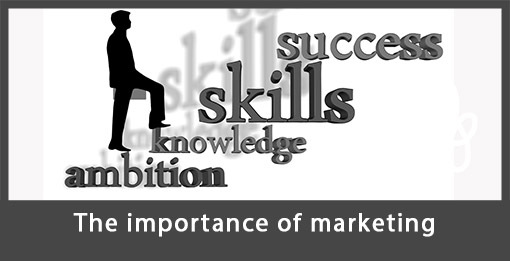 When I became a published author, I knew I would have to make sure I got my name out there so people heard about my books. However, I don’t know if I anticipated just how constant my communications would have to be.
When I became a published author, I knew I would have to make sure I got my name out there so people heard about my books. However, I don’t know if I anticipated just how constant my communications would have to be.
I always see a distinct difference in my trilogy’s Amazon ranking immediately after I’ve done an author event. Recently, I haven’t been ranking that well, as I’d had trouble finding the time and motivation to put myself out there. However, I attended a school fete recently, and sure enough, the following week, my Amazon ranking improved. It happens every time.
I think a lot of authors fail to realise just how important it is to continually market themselves and their books. When I worked for my publisher, Wombat Books/ Rhiza Press, and now that I’m working for Australian Ebook Publisher, a self-publishing company, I’ve seen quite a few new authors who seem to expect that their book will become a huge success simply because they put it up on Amazon and iBooks.
Wrong. While it’s definitely a good thing to have your books on these sites, and is an essential part of your marketing, there are so many books available on these sites that it’s unlikely many will notice yours, unless they’ve already heard of it. So how do you let people know you’re there?
Sorry to say, there’s no hard and fast rule. It’s more just a case of trying everything and seeing what works for you.
Over the next few weeks I’ll talk about a few different marketing strategies on my blog. If you’d like to suggest anything for me to include, leave a comment and let me know. If you’ve looked into a particular strategy and would like to do a guest blog on it, that would be much appreciated. 
May 14, 2016
Happy endings
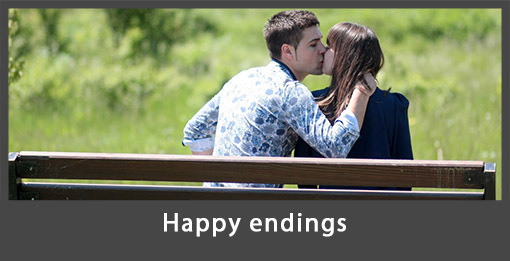 It was my sixteenth wedding anniversary this week, and as my husband and I celebrated, it was nice to see others celebrate with us by offering their congratulations. Over 80 friends ‘liked’ my Facebook post about the anniversary, and it made me thankful that so many rejoiced in the sixteen years we’ve had together.
It was my sixteenth wedding anniversary this week, and as my husband and I celebrated, it was nice to see others celebrate with us by offering their congratulations. Over 80 friends ‘liked’ my Facebook post about the anniversary, and it made me thankful that so many rejoiced in the sixteen years we’ve had together.
It also made me reflect on something I’ve noticed as an author, and that is that the majority of people like stories with happy endings.
Now, I’m sure you’re aware that numerous classic stories, which have stood the test of time when it comes to popularity, have sad endings. Wuthering Heights springs to mind, as does just about anything by Thomas Hardy. Perhaps one of the reasons for their endurance (in addition to the fact they’re brilliantly written) is because they’re in such a small category, because most writers seem to favour HEAs (Happily Ever Afters).
I’ve had a couple of ideas for stories with sad endings, and I’m not averse to writing one, I just haven’t had the desire to do it so far. I also wonder what my publisher would think. I’m not sure many publishers welcome those types of stories, particularly from first-time authors, probably because they know the lion share of the market prefers HEAs.
I’m active in a number of fan groups on sites like Goodreads, and thought I’d encounter a large number of readers there who preferred books that ended sadly. I was surprised how few there seem to be. Perhaps there are more who prefer books that end realistically, although that certainly rules out some HEA stories. Because, let’s face it, if we’re being realistic, Mr Rochester would never have allowed himself to marry a mere governess, as he does in Jane Eyre; Edward Ferrars would have married Lucy Steele, not Elinor Dashwood in Sense and Sensibility; and even Cinderella would never have had the chance to even attend a ball, let alone have a prince fall in love with her.
Why is it that so many of us like happy endings so much? Is it simply the desire to escape harsh realism when we have so much of it in our own lives? It is a desperate longing, or realisation in our hearts that the world should be a happier place? I’m not sure myself, but I know I like HEAs, however unrealistic some might be.
Do you like HEAs or do you prefer books with realistic endings? Can you think of examples of both? Let me know what you think in the comments section at the bottom of the page.
May 7, 2016
Happy Mothers’ Day!
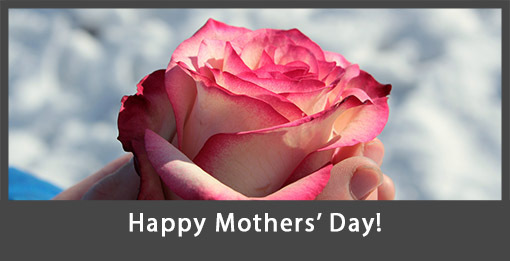 It’s Mothers’ Day today where I am, and yes, since this day celebrates lots of mothers I believe the apostrophe should be after the s!
It’s Mothers’ Day today where I am, and yes, since this day celebrates lots of mothers I believe the apostrophe should be after the s! 
I am mother to a beautiful young boy who’s growing up a bit too quickly for my liking. However, he’s now at the stage where he wants to buy gifts for me with his own money. This can be great if he gets me something I like, which is some of the time. I guess that’s better than none of the time.  At least my husband also gets a joint gift from both of them for me. Today, after I instructed them carefully, they bought just what I wanted – Star Wars – The Force Awakens on blu-ray. That made me happy.
At least my husband also gets a joint gift from both of them for me. Today, after I instructed them carefully, they bought just what I wanted – Star Wars – The Force Awakens on blu-ray. That made me happy. 
I remember the first thing my son ever gave me for Mothers’ Day. He was going to day care at the time, and they’d given the kids a card to colour in. His had a picture of a vase of roses on the front. When he gave it to me I noticed that he’d coloured the petal of one rose yellow and the others were all brown.
He handed it to me and said, ‘Here, Mummy. I coloured you some nice flowers.’
‘Thank you, darling,’ I said, ‘but why are most of them brown?’
‘Oh, they’re dead,’ he told me.
Thankfully, that’s the only time he has given me a picture of dead flowers!
One of the best things about being a mum is seeing him develop, especially in areas where I can see bits of myself coming through. At the end of last term his class was reading The Twits by Roald Dahl, and they were all asked to write an additional chapter to the book. My son elected to write a new first chapter for it, and his was so good he was asked to read it aloud to both classes in his grade. It was definitely a good effort, especially for a child who’s not yet in double digits.
Yes, I love my proud mummy moments. I know he’ll be all grown up soon, so I cherish each one and often wonder with interest what he’ll be when he grows up. Will he be a writer like me or a science geek like his dad? Maybe he’ll be both.
Have you got an interesting Mothers’ Day story? Tell us in the comments section at the bottom of the page.
April 30, 2016
Four things prospective authors should know
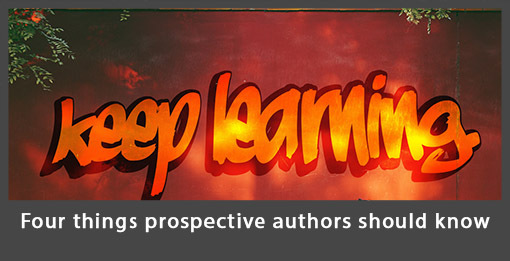 Today I’ve been reflecting on what I expected when I first became a published author and what the reality has turned out to be. Fortunately, I think I was fairly realistic, although, as with anyone with a good imagination, I had no trouble imagining myself achieving fame and fortune because of my writing! I must confess I still do at times.
Today I’ve been reflecting on what I expected when I first became a published author and what the reality has turned out to be. Fortunately, I think I was fairly realistic, although, as with anyone with a good imagination, I had no trouble imagining myself achieving fame and fortune because of my writing! I must confess I still do at times.
So I was thinking of four things I’d tell prospective authors if they ask and I’ve come up with these:
You will probably not become a famous author. You might, but there are far more of us out there who are struggling through this and using other jobs (or retirement money or inheritances, etc) to fund our writing because we make little out of it, if anything. This is not the quick road to fame and accolades. For the majority of us, there will never be a quick road to that.
If you work hard you will gain a following. It’s likely you will gain a following as an author but it’s something you need to work at. No author these days, whether traditionally published or self-published, can sit back and wait for everyone to do the work for them. You need to get out there and do a lot yourself. Even the big companies these days expect you to work hard at creating a ‘platform’ of followers. In fact, most demand you have one before they’ll even consider publishing your book. And the work never stops until you’ve run out of copies to sell (which with ebooks is never!) so you need to get into the habit of trying to generate interest in your writing and your books constantly if you want to keep your head in the game. Always try and seek ways to do this, but not to such an extent that you’re just ‘selling’ at people all the time. No one likes that. You need to find ways to engage people that are going to encourage them to read your books, not drive them away.
Get your book professionally edited before you start to look for a publisher. This is important even if you want a traditional publisher. While it’s true that a traditional publisher will pay for editing if they agree to publish your book, it’s best to have it professionally edited prior to sending it to them. Why would you want them to see your work at anything other than its best? And no, all that editing you’ve done on it will NOT be good enough; you’re too close to the work to see it objectively. And your friends, while they might be able to help find spelling and grammatical errors, aren’t necessarily going to find plotholes and timeline issues unless they’re industry professionals themselves. Don’t think that those things are enough. They’re not. And if you’re self-publishing, I’d get at least three rounds of professional editing before you publish.
Be prepared for rejection. You will be rejected as an author, whether it’s by publisher after publisher, bookstore after bookstore, reviewer after reviewer, or when you receive your first one star review (which will happen at some point). Be ready to get back up again and keep going, even if it seems hopeless. There’s always a new avenue to try. As hard as it is (and I find it one of the hardest things to do) try and remember the successes more than the failures. At least you’re trying. At least you’ve finished a manuscript. At least you’ve had it published. At least you have had other good reviews. Learn from the hard stuff and smile about the good stuff and keep on trying.
If you’re a first-time author hoping to find a publisher I hope these tips help you. Are there other things you’re worried about? Let me know in the comments section below. And if you’re an author with plenty of experience, perhaps you can comment with some other good advice I might have missed. We’ve always got something new to learn. 
April 23, 2016
Milestones and Achievements
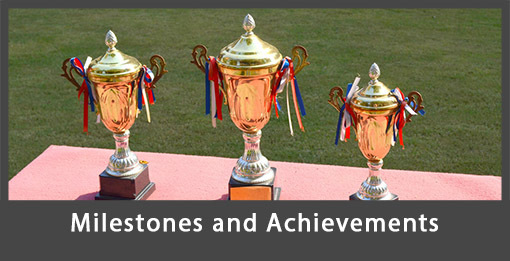 My husband turns forty this week, and in the midst of all the preparations for his birthday party, I’ve been reflecting on different milestones and moments of achievement in my life.
My husband turns forty this week, and in the midst of all the preparations for his birthday party, I’ve been reflecting on different milestones and moments of achievement in my life.
I passed the forty milestone a few years ago (I won’t say how many!) and we celebrated fifteen years of marriage last year. Our son will be ten this year, so that will require another celebration, as he enters double digits. These are some recent milestones in my personal life.
There have also been milestones and achievements in my writing career. Having The Heir accepted for publication was one of them. Having all the books in my trilogy published was another, and especially, seeing The Heir win the Literary Classics silver award in their science fiction section in 2014 was also a big one.
However, it’s interesting to note my attitude when it comes to talking about those kinds of achievements. I always find it more difficult to tell people about things like that. Sometimes it feels too much like boasting. A few years ago I was at a seminar at my son’s school, and they asked everyone to write down their greatest achievement. I wrote down The Heir winning its award, but when everyone else read theirs out, they were all things like losing weight and finding more time to read . Mine felt so self-congratulatory I struggled to share it. But I knew it was worth sharing. It was something important that happened to me and I was right to feel proud of my achievement. For the record, the other people in attendance didn’t seem to consider me boastful or arrogant when I told them. Instead, they were interested.
Sometimes it’s hard to remember that it’s all right to feel proud of the things we achieve, as long as we don’t use them as an opportunity to lord it over others. We all have talents and there’s no shame in celebrating them when we have a success.
Have you ever achieved something but were embarrassed to mention it? Let me know in the comments.
April 16, 2016
Books that become movies
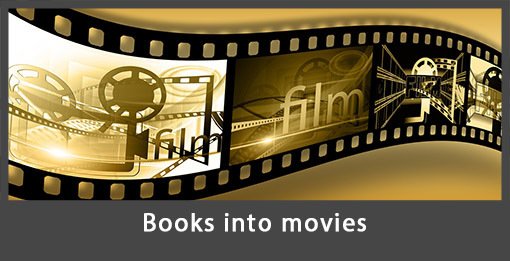 I know a lot of people usually complain when their favourite book is made into a movie. ‘It’s not the same!’ is the common mantra. Of course, books and movies are different animals, so some changes should be expected, but there have certainly been numerous times when I too, have cried foul about a favourite book being mangled by a movie.
I know a lot of people usually complain when their favourite book is made into a movie. ‘It’s not the same!’ is the common mantra. Of course, books and movies are different animals, so some changes should be expected, but there have certainly been numerous times when I too, have cried foul about a favourite book being mangled by a movie.
However, I’m always still happy to see the movie version of a book. There’s something incredibly exciting about seeing the characters I loved on the page being brought to life on the big (or small) screen. And it’s always interesting to speculate about what they’ll leave out and what they’ll include or change. It’s great when I’m right, although it’s sometimes bemusing when I’m wrong!
One of my favourite book-to-screen adaptations would have to be the mini-series of Anne of Green Gables made in the late eighties. Yes, they changed a few things, but the cast was so carefully chosen and portrayed their book counterparts so well I loved it and have watched it many times. One of the most disappointing book-to-screen adaptations I’ve seen so far would have to be the movie version of The Host, Stephenie Meyer’s sci-fi book. Ms Meyer’s books are always huge and usually pose a lot of challenges in the translation from book to screen, and I think this was the hardest one of all, given that an alien is living inside another human’s body and they both talk to each other. It’s hard to get that kind of thing right. But everything else seemed wrong with this one too. It was such a shame because I really enjoyed the book.
There are some other books I’ve read that I’d be interested to see made into movies. I think Veronica Rossi’s Under the Never Sky trilogy would work wonderfully on the big screen. I have heard that it has been optioned by a production company and I hope that’s true.
How about you? Do you have a favourite book-to-screen adaptation? Is there one you think really didn’t work? Is there another book you’d love to see made into a movie? Let me know in the comments section at the bottom of the page.
April 9, 2016
The book cover dilemma
 I’m sure most of you are aware by now that I have a new release coming up later this year. It’s called Once Confronted, and it’s a contemporary drama about a young woman who endures something horrible and has to find a way to recover from it and work through all the problems that life throws at her as a result. I’m both excited and nervous about its release, which is a pretty normal way to feel about it!
I’m sure most of you are aware by now that I have a new release coming up later this year. It’s called Once Confronted, and it’s a contemporary drama about a young woman who endures something horrible and has to find a way to recover from it and work through all the problems that life throws at her as a result. I’m both excited and nervous about its release, which is a pretty normal way to feel about it!
One thing that is always a dilemma when a new release is coming up is what to do with the cover of the book. Every author (and reader) knows how important a good cover is. It can be the difference between someone deciding for your book or against it. Good cover art can make someone pick up a book they would otherwise have left on the shelf.
Also, different covers appeal to different people. I discovered that with The Heir. While many people have said that its cover art attracted them, others have said that they read the book in spite of it, so clearly it’s not to everyone’s taste. Finding a cover that appeals to everyone is just about impossible, so the challenge is to find the cover that will be the most effective.
My publisher will soon put together a cover for Once Confronted. With this in mind, I made sure I gave my protagonist long blonde hair, in case she decides to use a picture of a woman for this cover. I remember from last time how hard it was to find many images of young women with short brown hair, as Sarah Fenhardt has in The Heir. The photo above was the best I could find to represent her, and eventually this image was used in the book’s second trailer, which can be seen here. It’s amazing how much difference the look of your protagonist has in terms of what you find to use on the cover.
Ultimately, I’m sure my publisher will decide on a cover that works for most people. It’s always a difficult line to walk, but I think she does a stellar job with all her covers, especially since they can be the most difficult decision made about any book.
Are you an author? What do you think of the covers of your book/s? Did you have a say in them, design them yourself, or did you just accept what your publisher gave you, even if you didn’t like it?
Are you a reader? Can you think of an occasion where the cover changed your mind about buying a book? Let me know in the comments section at the bottom of the page.
April 2, 2016
Admiration when you don’t expect it
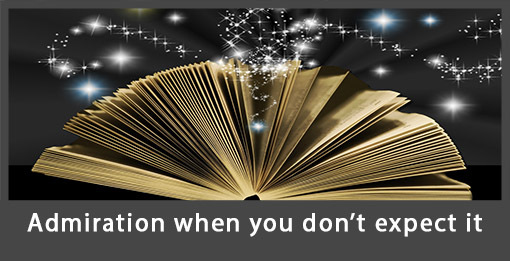 I haven’t been doing too many author events so far this year. It’s been difficult to get myself back in the swing of things. Also, with a new release coming up later in the year, I’m trying to build up to what will be a blitz when it’s available.
I haven’t been doing too many author events so far this year. It’s been difficult to get myself back in the swing of things. Also, with a new release coming up later in the year, I’m trying to build up to what will be a blitz when it’s available.
On Friday night, however, I hosted an Intimo party. Intimo is my favourite brand of lingerie. They provide great quality garments that really last, and since I needed some new stuff, I thought I’d invite others to a party so they could see what was on offer.
One of the ladies who attended my party is the mother of two girls who go to my son’s school. She is a fan of my writing, having enjoyed all three of the Verindon books. When she arrived at the party on Friday night, she brought a friend with her, and much to my surprise, her friend seemed more interested in the fact that I was an author than in the lingerie on offer. In fact, she gazed at me starry-eyed, as though I was some kind of celebrity, and peppered me with questions about why I write, how I come up with the story ideas, where the characters come from, etc.
Coming as it did, in the midst of a year where I have found it a struggle to do the ‘author’ thing, it was nice to see someone so interested in my books. And yes, she bought a copy of The Heir. If she likes it, she’ll come back for the other two. I hope she does. It was definitely an encouragement to me to have her so interested in what I love to do.
Are you a reader? Have you ever reached out to a favourite author? Are you a writer? What’s your favourite experience with your readers? Let me know in the comments section at the bottom of the page.



